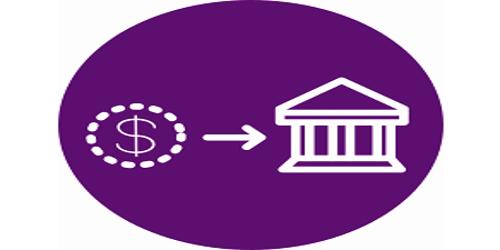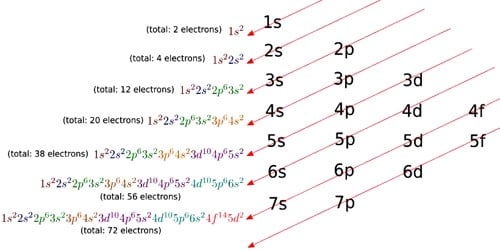There are plenty of jobs in the business world for those who love analytics and numbers two of the most common being financial analyst and accountant. A financial analyst is concerned with forecasting what a business will do in the future, while an accountant is concerned with recording what a business did in the past. While there is some cover between these two orders, they center around various spaces of cash for the executives. Another significant distinction between a financial analyst and an accountant is that the former is concerned with cash flow, economic value, and business optimization, while the latter is concerned with accruals, matching, identification, and other accounting concepts.
Financial analysts and accountants assume a significant part in the realm of business. In spite of the fact that the jobs and obligations of a Financial analyst and accountant are unique in relation to one another, few likenesses are there too between the two jobs. Both experts spend their days looking at statistics and percentages, reviewing financial matters like sales and expenditure reports, and performing critical calculations that are critical to a business’s survival. An accountant can review a company’s financial data on a daily basis, while a financial analyst looks at past and current trends to help achieve a future reality.
Likenesses between a financial analyst and an accountant as a calling can be perceived the focuses in the given below:
Educational Background –
- Financial Analyst: A bachelor’s degree in finance is the minimum requirement for a career as a financial analyst.
- Accountant: A bachelor’s degree in finance is the minimum educational requirement for an accountant, much as it is for a financial analyst.
Dealing with Financial Information –
- Financial Analyst: Financial analysts work with financial data to estimate or model a company’s future results.
- Accountant: Accountants work with financial data as well, but only for the purpose of preparing the company’s financial statements.
Same work environment –
- Financial Analyst: A financial analyst works in front of a computer, analyzing financial data and using financial tools to obtain the understanding and expertise needed to carry out their duties.
- Accountant: The accountant, like financial analysts, operates in a similar setting and uses similar financial tools for bookkeeping and financial statement preparation.
Providing accounting information to the users –
- Financial Analyst: Financial analysts give accounting information to the organization’s administration to help them in settling on business choices.
- Accountant: Accountants also provide accounting data to external clients in order to assist them in making investment decisions.

Financial Analyst: Data patterns are used by financial analysts to determine whether an investment opportunity meets the needs of an institution, company, or person. They must be able to comprehend these patterns and support their recommendations with a variety of data. They survey financial choices dependent on current market patterns, expressed business goals, and conceivable speculation alternatives. These experts’ assessments help decide if an undertaking or adventure is commendable enough for a venture.
Financial analysts usually work in an office environment, but they are required to travel to meet with various clients as part of their job. They must have outstanding math skills in order to calculate quality estimates, as well as computer skills in order to use the programs required to develop patterns, analyze data, and create portfolios. There are two primary kinds of financial analysis crucial investigation and specialized examination. An expert who utilizes central examination audits and assesses information from an organization’s budget reports to decide its worth. Technical research, on the other hand, involves determining value by using statistical patterns obtained from trading activity.

Accountant: Accountants are more concerned with specific and precise facts, day-to-day activities, financial accuracy, and an entity’s taxes. They are in charge of preparing reports as well as working with clients to discuss any financial advice they may have. The greater part of their work is done all alone, however, some may work with different accountants. An accountant portrays the current truth of an organization or a person’s accounts and performs obligations like inspecting or budget report examination.
Accountants must have strong analytical skills in order to spot any mistakes in reports quickly. Since they usually deal for several organizations at once, they must be extremely coordinated in order to keep client details separate and complete. Depending on their career goals, accountants may pursue a career as a top executive or even a financial manager. Others pursue senior roles in the hopes of being a boss, supervisor, or partner.
By all accounts, it might seem like there are not really any contrasts between a financial analyst and an accountant, however, their day-by-day duties, jobs, and general goals are shockingly particular. The distinctions between the two occupations, financial analyst and accountant, can be understood by looking at the points mentioned below:
Work Responsibility –
- Financial Analyst: A financial analyst’s responsibilities are primarily focused on achieving a single goal: ensuring a company’s financial well-being, stability, and overall performance in the near and long term. To put it another way, they look at the big picture or holistic view of the business.
- Accountant: Accountants are more concerned with the quality, planning, and audit of books and financial statements. An accountant spends the majority of his or her time reviewing financial transactions that have already occurred, despite the fact that some of their duties may include current and/or ongoing financial matters. They are also in charge of the company’s tax returns.
Certification Course –
- Financial Analyst: CFA, or Chartered Financial Analyst, is the most popular but not mandatory qualification course for financial analysts. A Master of Business Administration (MBA) may be beneficial, but it is not always necessary for a financial analyst.
- Accountant: Companies are increasingly requiring accounting candidates to have an MBA or a master’s degree in accounting or finance. CPA, or Certified Public Accountants, is the most common but not mandatory qualification course for accountants. In the financial industry, this is perhaps the most well-known and well-recognized technical designation.
Work Environment –
- Financial Analyst: Financial analysts are typically employed by large companies, which have a large number of expenditures and investments that need full-time monitoring. While some may work in a desk area like setting, most monetary examiners appreciate the extravagance and solace of having their own office. Many are needed to travel a significant measure of time to meet with significant customers or investigate and settle conceivably rewarding venture openings.
- Accountant: Accountants may work for large accounting firms or individually for a number of clients. Most accountants work in cubicles with other accounting workers in an office setting. Going to proficient accounting conferences and courses or potentially to direct reviews, a few accountants do infrequently go for work. Be that as it may, bookkeepers regularly don’t go as often as possible as financial analysts.
Salaries –
- Financial Analyst: Although financial analysts earn significantly more than other accountants on average, there is still a lot of variation in the profession. Financial analysts benefit more than accountants, according to the U.S. Bureau of Labor Statistics (BLS).
- Accountant: The average salary of accountants is lower than that of financial analysts, according to BLS data. Accountants, including financial analysts, should predict a 10% increase in work opportunities by 2026, which is higher than the average for other occupations, according to the Bureau of Labor Statistics.
The two professions probably appeal to a comparable subset of information crunching, thorough, and scientific people. An association would not have the option to prevail without the assistance of any of them. What’s more, both of the callings are a superb profession decision, end of the say it simply relies on the space of the interest of the competitors needing to embrace any of the vocations. Many accountants and financial analysts work standard 40- to 50-hour weeks, receive paid vacation days, and seldom work on weekends. Accountants assist in ensuring financial integrity and continuity by analyzing data to forecast potential results.
Information Sources:
















